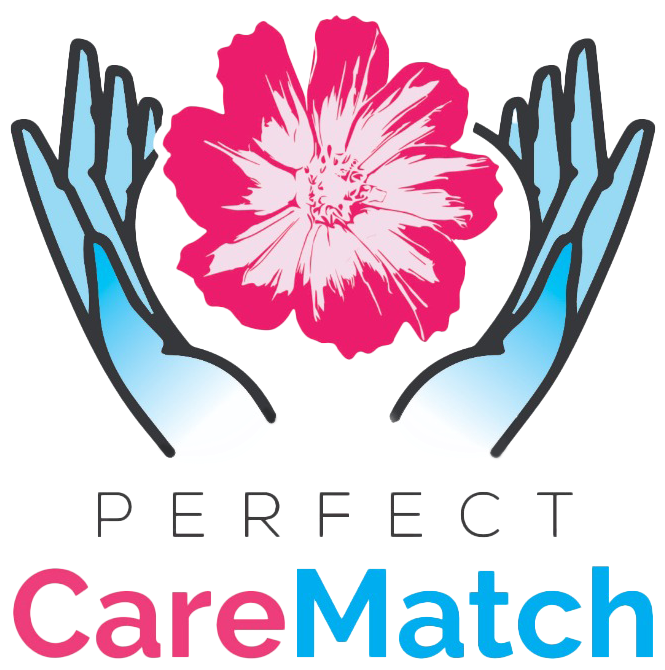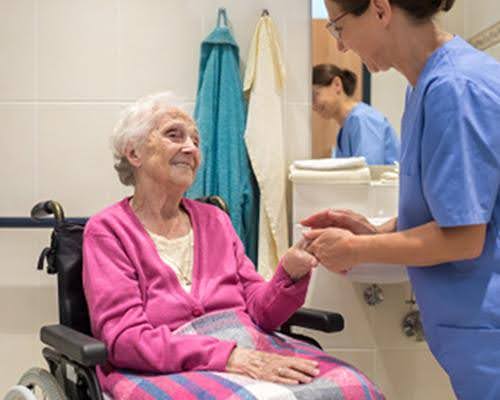Incontinence care is a deeply personal and emotional journey that requires empathetic, compassionate, and skilled care. When managed correctly, it encompasses much more than many may know.
The need for incontinence care is common among elderly patients generally and those who have Alzheimer’s disease and other forms of dementia. According to the Centers for Medicare and Medicaid Services (CMS), over 50% of nursing home residents experience some degree of incontinence, which can vary from minor urine leaks to complete loss of bladder or bowel control.
Incontinence care for the elderly is not just about cleaning and assisting with products like adult diapers. It’s about maintaining the integrity of their skin, a crucial aspect of their overall health. This responsibility falls on the shoulders of healthcare professionals, highlighting the importance of their role.
Crucial for Maintaining Healthy Skin Integrity and Preventing Infection
Delivering in-home care for an elderly patient’s health and hygiene is a multifaceted task. It involves caregivers assisting with changing incontinence pads or absorbent underwear, utilizing gels, wipes, or lotions to maintain cleanliness, guard and promote healthy skin integrity, and prevent infections. Additionally, options such as bed pads and all-in-one (AIO) products are utilized for patients with restricted mobility. Caregivers may also support patients in completing non-invasive treatments, including helping them maintain a bladder diary or administering medications to manage urinary incontinence.
Proper incontinence care is not just important; it is crucial for elderly patients and a key factor in maintaining healthy skin integrity and preventing skin breakdown, infections, and other complications. Maintaining good hygiene practices, such as regularly changing incontinence products, cleansing the skin gently with mild soap and water, and using barrier creams to protect the skin, can help prevent skin irritation and discomfort. More importantly, we can prevent developing more serious issues such as pressure ulcers, dermatitis, and other infections. Inadequate incontinence care can significantly increase the risk of a range of infections in elderly patients.
The more common infections that can occur include:
- Urinary Tract Infections (UTIs) are among the most common infections resulting from improper incontinence care. When urine remains on the skin for extended periods, bacteria can multiply and cause an infection in the urinary tract. UTIs can have a significant impact on the health of elderly patients. In older adults, UTIs can present with atypical symptoms, such as weakness, confusion, and dementia-like symptoms, rather than the typical urinary symptoms, such as burning sensation or frequent urination. This can lead to misdiagnosis or delayed treatment, potentially resulting in serious complications. UTIs and these resulting symptoms in elderly patients can also exacerbate underlying conditions, increase the risk of falls, and contribute to the overall decline in health and cognitive function. It is important to promptly recognize and treat UTIs in elderly patients to prevent these adverse effects and promote their well-being. Preventing and early identification of UTIs through proper incontinence care and close monitoring is critical to the health of older adults.
- Fungal Infections: Prolonged exposure to moisture from incontinence can create an ideal environment for fungal growth, leading to conditions such as yeast infections or fungal dermatitis.
- Bacterial Skin Infections: Skin breakdown and irritation caused by incontinence can make the skin more susceptible to bacterial infections, such as cellulitis or impetigo.
- Pressure Ulcers: Inadequate incontinence care can contribute to developing pressure ulcers, especially in areas where the skin is exposed to moisture and friction.
- Incontinence-Associated Dermatitis (IAD): IAD is a common skin condition caused by prolonged exposure to urine or feces. If not properly managed, it can lead to skin irritation, redness, and breakdown.
Proper hygiene practices, regular product changes, and skin integrity protocols are essential in preventing these infections and other risks. Care providers must regularly monitor and address any signs of disease in elderly patients receiving incontinence care to ensure their overall health and well-being. At Perfect Care Match, our skilled caregivers additionally work with any patient peripheral care providers to proactively communicate and ensure any warning signs or concerns are swiftly addressed, such as identified redness or swelling of an area or changes in skin condition.

Managing Incontinence With Proper Care, Compassion and Dignity
Addressing incontinence can be a sensitive and challenging issue for family caregivers and their elderly loved ones. It is essential to consider the emotional and psychological impact of incontinence on elderly patients. Providing compassionate care, respecting personal dignity, and involving patients in their care can help improve their overall well-being. Skilled in-home caregivers can play a crucial role in addressing and managing the sensitive nature of incontinence care with compassionate and respectful protocols and practices. In-home caregivers receive training to understand the potential impact on the emotional and psychological state of elderly patients.
By providing compassionate and empathetic care, caregivers help alleviate feelings of embarrassment, shame, or loss of dignity that elderly patients may experience due to incontinence. They communicate effectively with the patients, involving them in their care decisions and empowering them to maintain their independence and control, creating a safe and supportive environment for patients.
Professional Caregiving Services Can Help
For several reasons, it is generally better for a skilled caregiver to provide incontinence care to elderly patients than family members or spouses. Skilled caregivers
deeply understand the best practices for incontinence care and can ensure that patients receive high-quality and consistent care. This includes the expertise to properly manage incontinence issues, including implementing safe hygiene practices, preventing skin breakdown, monitoring for any signs of infection or skin breakdown, and addressing any possible complications. They also possess the necessary skills to handle challenging emotional responses and situations related to incontinence care and provide personalized and supportive responses based on the patient’s individual needs.
From a psychological and emotional standpoint, having a skilled caregiver provide incontinence care can help maintain the dignity and independence of the elderly patient. Experienced caregivers approach sensitive topics with empathy and respect, which can help reduce feelings of embarrassment or shame that the patient may experience. They can also offer emotional support and companionship, helping alleviate feelings of isolation or loneliness that elderly patients facing these challenges can experience.
While family members and spouses may have strong emotional connections with the patient, they may not always have the necessary skills or training to provide optimal incontinence care. Having non-family members provide incontinence care can also help alleviate embarrassment, elevate a sense of dignity for patients, and help them more easily transition to incorporating proper incontinence care into their daily routines.
Overall, skilled caregivers are better equipped to provide incontinence care to elderly patients than family members or spouses due to their expertise, training, and ability to address their physical and emotional needs. By entrusting the care of elderly individuals to skilled professionals, families can ensure that their loved ones receive the highest quality of care and support.
Perfect Care Match offers skilled home caregiving options to provide safe and affordable care for your loved one. We provide unique options tailored to meet your needs, including Hourly, Assisted Living Home Care, and Live-In care. Contact us today to learn more about our services and how we can help manage your incontinence care needs.

